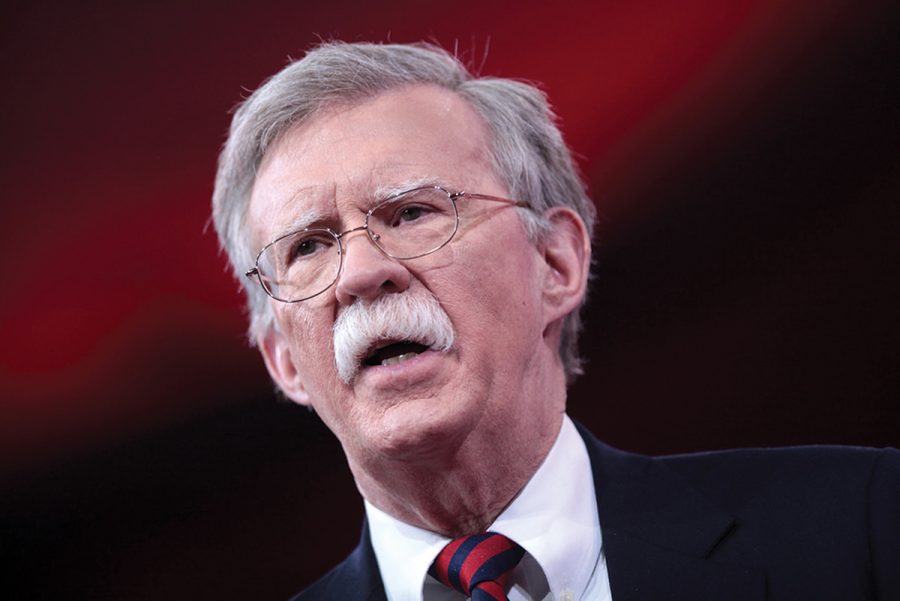John Bolton threatens ICC with sanctions
National Security Advisor John Bolton speaking at the 2015 Conservative Political Action Conference in National Harbor, Maryland. // Photo courtesy of Gage Skidmore
John Bolton denounced the International Criminal Court for attempting to prosecute U.S. operatives for war crimes committed in Afghanistan.
In response to ICC prosecutor Fatou Bensouda’s declaration that the ICC may look into possible war crimes committed by U.S. military personnel, Bolton issued threats of sanctions against the ICC and its member states if the court proceeded in investigating U.S. citizens.
Many have shown disappointment in Bolton’s dismissal of the ICC as an illegitimate organization that does not have the right to investigate U.S. citizens.
“It’s wrong, everyone should be held accountable for what soldiers are doing in the name of their nation,” said Iain Parrott ‘18. “Their agenda is to prosecute, but it’s not driven by any one national interest.”
If the United States continues to maintain that the ICC has no jurisdiction over U.S. citizens, there is no way for the ICC to extradite the individuals if they are found guilty of their crimes. The U.S. has no legal obligation to listen to the ICC because, after the Rome Statute of the International Criminal Court was adopted in 2004, the U.S. announced that it would no longer be a part of the ICC or its proceedings.
“I think that if United States personnel have done nothing wrong, then they should not be scared to go before the ICC,” said Early College student Ben Miller.
Miller echoed the points of many critics, who claim that the United States should not be given special treatment because of its position as a global superpower.
“He must fear they are guilty,” Miller said. “He could fear they might reveal wrongdoing within the whole system.”
Miller thought the international community would react very poorly to Bolton’s threat of sanctions against the ICC.
“I am sure the international community is quite peeved with the behavior of the United States and perhaps they could retaliate with sanctions as well,” Miller said. “I think having a higher level justice system is important for keeping countries in check.”
The ICC was founded to prosecute war crimes; however, the organization is limited by the conflicting interests of its member states. If a powerful nation such as the United States decides that it is above international law, the ICC has no way to enforce the law alone. Other member nations can punish the nations that dismiss the legitimacy of the ICC with sanctions, but member states have so far been unwilling to sanction the United States.
“While the ICC has good roots, an organization aiming to bring together the whole world and it’s united interests is absurd,” said Early College Student Braxton Bensel. “The diversity, both economically and socially separates countries too far to have one common organization which unites them.”
Despite the critics, Bolton remains steadfast in his assertion that the ICC is an illegitimate organization that does not have the right to investigate U.S. military personnel.









